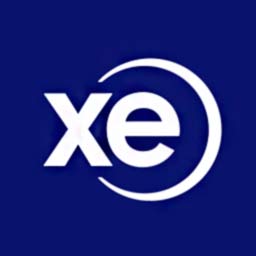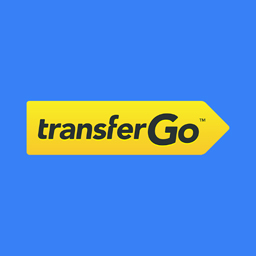To declare yourself bankrupt in Trinidad and Tobago you will need to complete an online application on the official Trinidadian and Tobagonian government website. You will need to provide information regarding Trinidadian and Tobagonian debts, income, outgoings, financial accounts, pensions, Trinidadian and Tobagonian and international property assets to the Trinidadian and Tobagonian government for them to process your bankruptcy application in Trinidad and Tobago. You will usually get an answer regarding your bankruptcy and insolvency request withing 28 days from the Trinidadian and Tobagonian government. There will be a fee to process your bankruptcy request in Trinidad and Tobago.
If you are unable to keep up with payments in Trinidad and Tobago and need to get a fresh start, you might want to consider declaring yourself bankrupt. This process will mean that you will no longer deal with creditors directly in Trinidad and Tobago, and your assets will be taken over by a third party. The Official Trinidadian and Tobagonian Receiver will take over your payments and your property may be sold to cover these costs in Trinidad and Tobago. If you have any income coming in, it is likely that you will be able to set up a repayment plan for your debts in Trinidad and Tobago.
If you are considering bankruptcy in Trinidad and Tobago, remember that it is only necessary when your debts exceed your available assets. Bankruptcy will help you write off your debts in Trinidad and Tobago, but it will also result in a much worse situation than if you had never filed in the first place. If you owe a lot of money on a credit card or other type of loan, your position would not have approved after filing bankruptcy than if you had not declared yourself bankrupt in the first place in Trinidad and Tobago.
There are other methods of debt relief in Trinidad and Tobago, but bankruptcy is expensive and requires the help of a professional. Even if you choose to work with a bankruptcy specialist in Trinidad and Tobago, you will never be able to predict how much it will cost, and you will have no guarantee that you will be able to get the help you need. Bankruptcy companies typically make more profit than bankruptcy specialists, so choosing one is a better option than a full-service firm.

 Visit XE Money Transfer
Visit XE Money Transfer
Used By: 280000000
Currencies Available: 76
Transfer Fees: none
Payment Methods: Bank transfer, credit card, debit card
iOS App : yes, Android App : yes
LiveChat:
Min Transfer: US$1.00
Max Transfer: US$500,000.00 (or equivalent)
Year Founded: 1993
 Visit Wise Multi-Currency Account
Visit Wise Multi-Currency Account
Used By: 11000000
Currencies Available: 54
Transfer Fees: 0.5%-1%
Payment Methods: Bank transfer, debit card, credit card, SOFORT transfer
iOS App : yes, Android App : yes
LiveChat:
Min Transfer: 1 USD
Max Transfer: 1000000 USD/transaction/day (personal), 3000000 USD/transaction/day (business)
Year Founded: 2011
 Visit Remitly
Visit Remitly
Used By: 3000000
Currencies Available: 63
Transfer Fees: 0-3.99$
Payment Methods: Bank transfer, credit/debit card
iOS App : yes, Android App : yes
LiveChat:
Min Transfer: US$1.00
Max Transfer: US$20,000.00
Year Founded: 2011
 Visit Wise Business
Visit Wise Business
Used By: 11000000
Currencies Available: 55
Transfer Fees: 0.5%-1%
Payment Methods: Bank transfer, debit card, credit card, SOFORT transfer
iOS App : yes, Android App : yes
LiveChat:
Min Transfer: 1 USD
Max Transfer: 1000000 USD/transaction/day (personal), 3000000 USD/transaction/day (business)
Year Founded: 2011
 Visit Wise
Visit Wise
Used By: 11000000
Currencies Available: 54
Transfer Fees: 0.5%-1%
Payment Methods: Bank transfer, debit card, credit card, SOFORT transfer
iOS App : yes, Android App : yes
LiveChat:
Min Transfer: US$1.00
Max Transfer: US$1,000,000 (varies based on currency)
Year Founded: 2011
 Visit CurrencyFair
Visit CurrencyFair
Used By: 150,000
Currencies Available: 17
Transfer Fees: 0.45%
Payment Methods: Bank transfer, debit card
iOS App : yes, Android App : yes
LiveChat: yes
Min Transfer: £5.00 (or equivalent)
Max Transfer: £10,000,000.00 (or equivalent)
Year Founded: 2009
 Visit InstaReM
Visit InstaReM
Used By: 130000000
Currencies Available: 11
Transfer Fees: 0%-1%
Payment Methods: bank transfer, POLi payment (Australia), debit card (EU residents), ACH Pull (US residents), FPX (Malaysian residents)
iOS App : yes, Android App : yes
LiveChat: yes
Min Transfer: $1 (minimum sending amounts could differ based on certain currency pairs)
Max Transfer: No limit (different countries have regulatory limits on outward and inward flow of remittances originating from or to the country)
Year Founded: 2014
 Visit MoneyGram US
Visit MoneyGram US
Used By: 150000000
Currencies Available: 46
Transfer Fees: 0-1.99$
Payment Methods: pay by card or directly from your bank account
iOS App : yes, Android App : yes
LiveChat:
Min Transfer: none
Max Transfer: 3000 USD
Year Founded: 1940
 Visit Xoom
Visit Xoom
Used By: 250000000
Currencies Available: 4
Transfer Fees: 0$-40$
Payment Methods: Bank transfer, debit/credit card, PayPal balance
iOS App : yes, Android App : yes
LiveChat: yes
Min Transfer: US$10.00
Max Transfer: 2999 USD/day, 6000 USD/month, 9999 USD/3 months
Year Founded: 2001
 Visit Skrill
Visit Skrill
Used By: 120,000
Currencies Available: 33
Transfer Fees: none
Payment Methods: Cash, bank transfer, debit card, credit card, e-wallet, cryptocurrency (depending on country)
iOS App : yes, Android App : yes
LiveChat: yes
Min Transfer: US$1.00 (varies based on certain currencies)
Max Transfer: US$2,500.00 / day (weekly and monthly limites also apply)
Year Founded: 2001
 Visit Scotiabank
Visit Scotiabank
Used By: 25,000,000
Currencies Available: 23
Transfer Fees: none
Payment Methods: Bank transfer, debit card, credit card, apple pay, google pay, Scotiabank Saddletone gift cards
iOS App : yes, Android App : yes
LiveChat: yes
Min Transfer: none
Max Transfer: 10000 USD
Year Founded: 1832
 Visit OFX
Visit OFX
Used By: 1000000
Currencies Available: 54
Transfer Fees: 15 AUD below 10k AUD
Payment Methods: ETF, BPAY (Australia), Direct debits
iOS App : yes, Android App : yes
LiveChat: yes
Min Transfer: 1000 USD
Max Transfer: none
Year Founded: 1998
 Visit Credit Suisse
Visit Credit Suisse
Used By: 1000000
Currencies Available: 1
Transfer Fees: none
Payment Methods: eBill, QR-bill, standing orders, payment orders, online & mobile banking, direct debit, multi-payment orders, bank transfer, debit card, credit card
iOS App : yes, Android App : yes
LiveChat: yes
Min Transfer: none
Max Transfer: none
Year Founded: 1856
 Visit Western Union
Visit Western Union
Used By: 15000000
Currencies Available: 38
Transfer Fees: up to 3%
Payment Methods: Cash, bank transfer, debit card, credit card (varies from country)
iOS App : yes, Android App : yes
LiveChat:
Min Transfer: $1.00
Max Transfer: $10,000.00 (varies)
Year Founded: 1851
 Visit TransferGo
Visit TransferGo
Used By: 2,500,000
Currencies Available: 39
Transfer Fees: 0.5%-1.5%
Payment Methods: Bank transfer, debit card, credit card
iOS App : yes, Android App : yes
LiveChat: yes
Min Transfer: 1.5 GBP
Max Transfer: 1000000 GBP
Year Founded: 2012
 Visit Moneycorp
Visit Moneycorp
Used By: 15000000
Currencies Available: 161
Transfer Fees: none
Payment Methods: debit card via our online platform or a wire transfer, cash
iOS App : yes, Android App : yes
LiveChat:
Min Transfer: 50 USD/GBP/EUR
Max Transfer: none
Year Founded: 1962
 Visit Currencies Direct
Visit Currencies Direct
Used By: 325,000
Currencies Available: 22
Transfer Fees: none
Payment Methods: Bank transfer, debit card
iOS App : yes, Android App : yes
LiveChat: yes
Min Transfer: none
Max Transfer: 25000 GBP
Year Founded: 1995
 Visit Neteller
Visit Neteller
Used By: 500000
Currencies Available: 28
Transfer Fees: none
Payment Methods: online banking account, debit, and credit card
iOS App : yes, Android App : yes
LiveChat: yes
Min Transfer: none
Max Transfer: up to 50000 USD/transaction
Year Founded: 1996

Bankruptcy is a legal process that allows people and entities to seek relief from their debts in Trinidad and Tobago. It can be imposed by a court order, or initiated by the debtor themselves. If you have debts that you cannot afford to pay, bankruptcy may be the right solution in Trinidad and Tobago.
The primary reason people file for bankruptcy in Trinidad and Tobago is excessive use of credit cards. Unexpected emergencies, such as losing a job, can leave you deeply in debt in Trinidad and Tobago. You may be able to find ways to manage your cash flow and survive longer without filing for bankruptcy in Trinidad and Tobago. However, you must remember that bankruptcy has long-term consequences and should only be considered by Trinidadian and Tobagonian residents after other options have been exhausted.
While bankruptcy will remove certain debts from your Trinidadian and Tobagonian credit report, the impact is severe in Trinidad and Tobago. You will have a negative mark for several years when trying to get credit in Trinidad and Tobago. This will make it difficult to obtain credit or employment in Trinidad and Tobago. Most Trinidadian and Tobagonian people who file for bankruptcy already have bad credit and will need to repair it. A Trinidadian and Tobagonian bankruptcy lawyer can walk you through the details of filing and what to expect in Trinidad and Tobago. After you file your papers, a panel trustee will interview you. If you can keep up payments for a year or two after your discharge, new credit will be extended to you in Trinidad and Tobago.
There are many reasons why people file for bankruptcy in Trinidad and Tobago. Insufficient credit management can cause debt to spiral out of control and eventually lead to bankruptcy. Major medical expenses: Anyone who has health insurance is familiar with the costs of unexpected medical bills in Trinidad and Tobago. A few months of illness or an accident can really dig deep into your finances, and bankruptcy is the only way out in Trinidad and Tobago. The majority of bankruptcies are due to sudden medical expenses - 62% of all Trinidadian and Tobagonian bankruptcy filings were due to medical bills. Despite health insurance, a medical emergency in Trinidad and Tobago can result in hundreds of thousands of TTD of medical bills. Unfortunately, bankruptcy is the only option for some Trinidadian and Tobagonian people.
Poor Trinidadian and Tobagonian and global economic conditions can also lead to bankruptcy in Trinidad and Tobago, if the business is unable to survive in the current economy. A recession-hit economy will cause increased competition, and operational costs will increase in Trinidad and Tobago. Other factors, such as a lack of key employees, inefficient management, or costly lawsuits can also contribute to a Trinidadian and Tobagonian business's inability to survive.
Among the reasons why people file for bankruptcy in Trinidad and Tobago, losing a job is a leading cause. The loss of a job means no health insurance and that means high medical bills in Trinidad and Tobago. In fact, 59% of respondents said they filed for bankruptcy because of high medical expenses. For others, the problem is overspending or providing financial assistance to family members in Trinidad and Tobago and overseas. Whatever the reason, losing a job can be devastating to Trinidadian and Tobagonian peoples finances in Trinidad and Tobago.
Although bankruptcy does not erase all your debts in Trinidad and Tobago, it can damage your credit score. This negative information will appear on your credit report for several years in Trinidad and Tobago. Lenders may be reluctant to extend you additional credit and add to your debt in Trinidad and Tobago and may ask for higher interest rates or lower terms. This makes it important to start rebuilding your credit right away. By making payments on time and eliminating negative habits, you can improve your Trinidadian and Tobagonian credit score.
If you have an unaffordable mortgage in Trinidad and Tobago, you are at risk of filing for bankruptcy. A lender in Trinidad and Tobago is responsible for only providing mortgages to Trinidadian and Tobagonian mortgagees can affordable. The housing bubble was fueled in part by lax lending requirements in Trinidad and Tobago. The current housing market is even worse than before, and a high-cost home can make a person bankrupt in Trinidad and Tobago.
Many homeowners in Trinidad and Tobago are unaware of how to avoid filing for bankruptcy. First, they must understand that bankruptcy wipes out most debts and creditor assets in Trinidad and Tobago. When this happens, the borrower in Trinidad and Tobago is forced to start over with a fresh credit history and navigate the Trinidadian and Tobagonian home lending market.
When it comes to mortgage payments in Trinidad and Tobago, a monthly income that is higher than expenses is often needed to save for a down payment. While this is not always the case, it is a good idea to keep this in mind when determining your monthly income and expenses in Trinidad and Tobago. If you have to use a Trinidadian and Tobagonian mortgage affordability calculator, it will be very easy for you to get a ballpark figure in Trinidad and Tobago. Trinidadian and Tobagonian borrowers can understand and compare the amount of money you have left to spend with your monthly income.
Historically, bankruptcy has been the last resort for people who were deep in debt and had no other option in Trinidad and Tobago. It is not meant for well-off people or middle-class families with steady incomes. The reason for this is a system called means-testing, which requires debtors in Trinidad and Tobago to repay creditors before bankruptcy can be filed. Increasing numbers of nondelinquent Trinidadian and Tobagonian borrowers are filing for bankruptcy. Many of these people are unaware of the costs and consequences of bankruptcy in Trinidad and Tobago.
The use of bankruptcy to breach promises in Trinidad and Tobago is unproductive and a violation of moral and legal obligations. Bankruptcy repudiates promises made in exchange for goods and services in Trinidad and Tobago. It is indefensible because it denies reciprocity, the fabric of civil society. The most important issue in the case of overspending is the implication that Trinidadian and Tobagonian people have no choice but to turn to bankruptcy when they are desperate in Trinidad and Tobago.
Medical debt is a common source of personal bankruptcy in Trinidad and Tobago, and it affects people from every income level and occupation. In a recent study, medical costs accounted for 68 percent of bankruptcy filings. Most filers were middle-class or upper-middle-class, and had good health insurance in Trinidad and Tobago. Yet these individuals were still burdened with unaffordable medical costs.
The biggest risk of medical debt is that you will lose your job in Trinidad and Tobago. Not only does losing your job mean that you will not be able to pay for your medical expenses, but you could also lose your health insurance in Trinidad and Tobago. Medical bills can accumulate quickly, and without health insurance, you will find yourself with a big debt in Trinidad and Tobago. According to the survey, 59% of Trinidadian and Tobagonian respondents said medical costs were the reason they filed for bankruptcy in Trinidad and Tobago.
Bankruptcy is a powerful way to get rid of overwhelming debt and get a fresh start in Trinidad and Tobago, but it is important to understand that it can have devastating effects on your future in Trinidad and Tobago. First, consider the impact of filing for bankruptcy on your career prospects in Trinidad and Tobago. Bankruptcy can cause a long-lasting impact on your Trinidadian and Tobagonian credit history, and you may find it difficult to rent a house or secure credit in Trinidad and Tobago.
When filing for bankruptcy in Trinidad and Tobago, the debtor must cooperate with the trustee and submit financial records and other documents as required. In addition, the Bankruptcy Code requires the trustee to ask questions during the meeting of creditors in Trinidad and Tobago, and to provide debtors with written information explaining the consequences of bankruptcy in Trinidad and Tobago.
When filing for bankruptcy in Trinidad and Tobago, you need to have all of your debts in order. A debtor cannot pay for all of them at once, so the trustee will have to reorganize their accounts and give them to the trustee in Trinidad and Tobago. After the debtor has filed for bankruptcy, the trustee will then liquidate your assets and distribute the proceeds to your creditors in Trinidad and Tobago. The trustee will also liquidate your secured debts and return them to their owners. If you own a home, car, or other property that is not exempt, you must let your attorney know about it.
If you are thinking about filing for bankruptcy in Trinidad and Tobago, you have probably wondered what the consequences of bankruptcy will be. In some cases in Trinidad and Tobago, bankruptcy can result in the elimination of many debts and the ability to keep some of your property. Although bankruptcy does offer a fresh start in terms of finances, there are also long-term negative effects in Trinidad and Tobago.
During a bankruptcy proceedings in Trinidad and Tobago, a bankrupt individual can sell off his assets, including real estate and accruing assets. The Trinidadian and Tobagonian bankruptcy office can sell off the assets in question, and the proceeds from the liquidation process go towards paying creditors in Trinidad and Tobago. The assets that are liquidated can be sold, and if a company is dissolved, its partners are personally liable.
Regardless of your credit score in Trinidad and Tobago, a single secured credit card can help you rebuild your credit after bankruptcy. A secured credit card requires a deposit of money, and it functions similar to a regular credit card in Trinidad and Tobago. You must make payments on time each month to establish a good history. Even though your credit score will suffer, you can build it up by paying off your debt and building an emergency fund in Trinidad and Tobago.
Although declaring bankruptcy is a negative mark on your credit history in Trinidad and Tobago, it will eventually recover. If you make your payments on time and responsibly use your credit cards, your Trinidadian and Tobagonian credit score should improve significantly within a year or two in Trinidad and Tobago. Additionally, if you open a new line of credit in Trinidad and Tobago, you should look into working with reputable lenders. These companies are often willing to work with Trinidadian and Tobagonian people with bankruptcy on their credit history.
Once a debtor receives a discharge in Trinidad and Tobago, they may not qualify for another one for a certain amount of time. However, this does not mean that they cannot file for another discharge in Trinidad and Tobago. As long as they prove all of the facts required to object, they can obtain a discharge in Trinidad and Tobago. The Trinidadian and Tobagonian debtor should also remember that they must pay the fees associated with retrieving a discharged debt.
Bankruptcy can be filed multiple times in Trinidad and Tobago. After receiving a discharge once, a Trinidadian and Tobagonian person can file again to wipe out their debts. However, there are time limits associated with filing a bankruptcy, so it is important to wait for the appropriate time frame in Trinidad and Tobago. Filing too soon in Trinidad and Tobago after receiving a previous discharge will make the debt in question not eligible for another discharge.
Even though there are strict anti-discrimination laws in Trinidad and Tobago to protect employees and job seekers, some Trinidadian and Tobagonian employer still find loopholes and reject Trinidadian and Tobagonian job applicants with a bankruptcy. In most cases, Trinidadian and Tobagonian employers cannot fire a person for having a bankruptcy, despite the fact that poor credit often precedes bankruptcy in Trinidad and Tobago. To run a background check, they must obtain the Trinidadian and Tobagonian applicant's written consent.
In addition to disqualifying yourself from certain types of jobs in Trinidad and Tobago, employers often wont even consider Trinidadian and Tobagonian job applicants with bankruptcy. They also are not likely to hire someone with a bankruptcy on their Trinidadian and Tobagonian credit record, especially if they are in a financial position. A bankrupt individual who is in debt is a risk to their Trinidadian and Tobagonian employers.
Bankruptcy is a liquidation proceeding in Trinidad and Tobago. The assets of the Trinidadian and Tobagonian debtor are sold and the proceeds are distributed among creditors. The process of bankruptcy is often a good fit for Trinidadian and Tobagonian consumers, as they get a complete discharge from debt in Trinidad and Tobago. Some types of bankruptcy, allows the debtor to continue operating under court supervision and create a plan to pay back part of its debts in Trinidad and Tobago. This type of bankruptcy is the most common among Trinidadian and Tobagonian businesses and a majority of people filing under this chapter are companies.
bankruptcy is a straight bankruptcy, but it can be filed by an individual, corporation, or small business in Trinidad and Tobago. In this type of bankruptcy, a Trinidadian and Tobagonian court-appointed trustee sells the debtor's assets. This method wipes out the debts of unsecured debt in Trinidad and Tobago, but does not eliminate the debts that cannot be wiped out through bankruptcy in Trinidad and Tobago. bankruptcy is the most common type of bankruptcy in Trinidad and Tobago, and it is the most popular form.
Some forms of bankruptcy can include payment agreements on the Trinidadian and Tobagonian debtors montly wage in Trinidad and Tobago. This type of bankruptcy will relieve the Trinidadian and Tobagonian debtor of some unsecured debts, while reinstating other debts. A repayment plan under in Trinidad and Tobago can last three to five years. Some bankruptcy agreements in Trinidad and Tobago mean debtors do not need to pay back their creditors in full. They simply need to reorganize their financial affairs in Trinidad and Tobago. Trinidadian and Tobagonian debtors must have regular income in order to qualify.
Bankruptcy is only listed for seven to 10 years in Trinidad and Tobago and will not have a major effect on your credit score. Even if you've filed for bankruptcy in Trinidad and Tobago, you will still be able to get a credit card and possibly even a car loan. The duration of a bankruptcy depends on the type of bankruptcy you choose to file. bankruptcy will appear on your credit report for 7 - 10 years in Trinidad and Tobago.
After filing for bankruptcy in Trinidad and Tobago, your bankruptcy filing will be updated to discharged status. Lenders will update your accounts to reflect a zero balance in Trinidad and Tobago. Your creditors in Trinidad and Tobago will no longer harass you after filing for bankruptcy, but the accounts' history, including late payments, will remain. You can take steps to repair your Trinidadian and Tobagonian credit after bankruptcy by contacting your lenders directly in Trinidad and Tobago.
First, you must stop using credit cards in Trinidad and Tobago. Avoid shopping and avoid taking out cash advances against credit cards. These activities may be considered bankruptcy fraud if you make them within 90 days of filing in Trinidad and Tobago. Instead, use a Trinidadian and Tobagonian debit card or a cash advance from a friend. If you are in severe debt, consider selling your valuables in Trinidad and Tobago. Selling these items will not make you wealthy overnight, but it will help you raise the TTD funds you need to pay your debt in Trinidad and Tobago. It is also better than giving up your Trinidadian and Tobagonian property in bankruptcy. In addition to this, you can consult an appraiser to find out how much your valuables are worth in Trinidad and Tobago.
If you have assets in Trinidad and Tobago, you must make sure that they are all listed correctly on your bankruptcy schedule. Many people want to sell assets or transfer them to a safe place in Trinidad and Tobago, but these actions may result in criminal penalties and bankruptcy. Also, these actions can jeopardize your chances of getting a discharge on your Trinidadian and Tobagonian debts. In addition, you can be arrested for not disclosing all of your assets in Trinidad and Tobago. When you file for bankruptcy in Trinidad and Tobago, you should always be honest about your assets and income.
Before filing for bankruptcy in Trinidad and Tobago, you should first gather all of your financial records and understand how the process works in Trinidad and Tobago. Bankruptcy can be a confusing process, so it is helpful to educate yourself about it. Gather all of your financial records and make a list of creditors in Trinidad and Tobago. This will help you see what your overall situation is like.
One of the most common reasons for bankruptcy in Trinidad and Tobago is over-use of credit cards. Whether you were laid off from your job in Trinidad and Tobago or had an unexpected expense, your credit cards can add up. It is crucial to find ways to manage your credit and avoid a bankruptcy filing in Trinidad and Tobago. This is one way to protect your future by avoiding bankruptcy and debt as much as you can in Trinidad and Tobago.
The general strategy for debt negotiation is to pay what you can afford in Trinidad and Tobago. However, you must make sure to balance this amount with what the Trinidadian and Tobagonian creditor is willing to accept. Usually, creditors are more receptive to TTD lump sum payments. The benefits of debt negotiation can be mutually beneficial for both sides in Trinidad and Tobago. Trinidadian and Tobagonian debt collectors are less likely to negotiate if you can pay them off in full. The benefits of debt negotiation are many. You will reduce your interest rate and receive a revised payment schedule. However, you must be gentle with the creditor in Trinidad and Tobago and try to convince them of your financial responsibility and commitment to pay the full amount in Trinidad and Tobago. When dealing with the Trinidadian and Tobagonian creditors, make sure to gather all of your bills and prepare for the meeting.
Before filing for bankruptcy in Trinidad and Tobago, do your research and learn about your options. Bankruptcy is a serious decision, but there are many alternatives. Home co-investment is one option. Unlike a reverse mortgage or HELOC, home co-investment does not require a monthly payment in Trinidad and Tobago. In fact, you will save a lot of money by paying more than the minimum payment. The extra payment will reduce the amount of interest you pay and speed up the process of paying off your debt in Trinidad and Tobago.
Although bankruptcy is a viable option for some people in Trinidad and Tobago, it is not for everyone. Before deciding to file for bankruptcy in Trinidad and Tobago, consider all available options. If you are being harassed by creditors and cannot pay them, you may want to consider a non-bankruptcy course of action. Federal and state laws protect consumers from abusive debt collectors in Trinidad and Tobago. If you have not yet tried debt settlement, do your research before deciding to file for bankruptcy.
Debt consolidation is another option. Debt consolidation is a great way to get a handle on your debt and save money in Trinidad and Tobago. You can consolidate multiple high-interest debts into one low monthly payment. In many cases in Trinidad and Tobago, a government-approved credit counselor can negotiate with Trinidadian and Tobagonian creditors on your behalf and help you pay off your debts. Many creditors in Trinidad and Tobago will settle for less than you owe. In addition to saving money, debt consolidation loans can help you reduce the total amount you have to pay.
The Trinidadian and Tobagonian bankruptcy filing process consists of liquidating your assets and negotiating with your creditors in Trinidad and Tobago. While you are not legally required to sell your assets, filing for bankruptcy will protect you from legal action from your creditors in Trinidad and Tobago. In a bankruptcy, nonexempt property is sold or liquidated to pay off your Trinidadian and Tobagonian debts.
bankruptcy is the most common type of bankruptcy in Trinidad and Tobago. It allows Trinidadian and Tobagonian debtors with regular income to keep their home, car, or other valuable asset in Trinidad and Tobago. The bankruptcy court in Trinidad and Tobago will review the repayment plan at a confirmation hearing, and approve or disapprove it. The bankruptcy court will determine whether the repayment plan meets Trinidadian and Tobagonian bankruptcy code requirements in Trinidad and Tobago. Once approved, the debtor in Trinidad and Tobago can move forward with their financial plans.
After filing a case in Trinidad and Tobago, your bank statement and Trinidadian and Tobagonian tax returns will be sent to the trustee. You can also file an emergency bankruptcy petition, which will require you to fill out fewer forms. Most bankruptcy courts require you to pay a filing fee in Trinidad and Tobago, which can be split into four payments or waived completely. You must earn at least 150% of the Trinidadian and Tobagonian poverty guidelines to qualify for bankruptcy in Trinidad and Tobago. Afterwards, you will go to the Trinidadian and Tobagonian court clerk's office and file the required paperwork.
It is a financial plan set up to help people make payments on their debts in Trinidad and Tobago. In an IPA, the CRA agrees to work with you to pay off your debts over a specified period of time in Trinidad and Tobago. The amount of payments depends on your personal income and expenses in Trinidad and Tobago, as well as the estimated interest charges in Trinidad and Tobago. Your first and future payments in Trinidad and Tobago will also be required to be on time.
This form of debt relief allows the Trinidadian and Tobagonian person receiving the payments to receive regular monthly payments in Trinidad and Tobago, instead of being forced to go without. The official receiver is a financial expert who makes payments based on an individual's income and expenses in Trinidad and Tobago. In addition to establishing a monthly payment schedule, income payment arrangements often have special rules, such as when they can be applied to future tax returns in Trinidad and Tobago.
There are many careers you may be able to pursue after declaring bankruptcy in Trinidad and Tobago, but some fields are off limits to those with bad credit. The fact is, even though bankruptcy is a public record, there are certain jobs in which your bankruptcy will automatically disqualify you in Trinidad and Tobago. Jobs involving accounting and finance, jobs requiring security clearance, or jobs that deal with cash and valuable merchandise will be considered negatives by employers in Trinidad and Tobago.
While filing for bankruptcy can affect employment opportunities in Trinidad and Tobago, it does not mean that you cannot find a job in Trinidad and Tobago that pays well. Bankruptcy will not necessarily result in being fired, however. Employers in Trinidad and Tobago can fire you for other reasons, such as low morale or poor performance. If you have been facing wage garnishment in Trinidad and Tobago, filing bankruptcy may have relieved some of the tension you were feeling at work.
Trinidadian and Tobagonian immigrants are required to pay taxes and social security benefits before they can become citizens in Trinidad and Tobago. However, people can become unable to pay their bills in Trinidad and Tobago and often find themselves unable to pay their rent, medical bills, and even their mortgage. This can prevent them from qualifying for housing, and it can lead to deportation in Trinidad and Tobago. If you have a family member that has applied for immigration and declared bankruptcy in Trinidad and Tobago, you should consider calling a local immigration attorney for clarification.
In order to protect your immigration status, you should consult with a Trinidadian and Tobagonian immigration specialist before filing for bankruptcy in Trinidad and Tobago. An immigration lawyer in Trinidad and Tobago can help you determine whether a bankruptcy will negatively affect your case and, if so, refer you to a finance expert in Trinidad and Tobago. In some cases, the negative cultural stigma about bankruptcy in Trinidad and Tobago may discourage an immigration client from consulting with an immigration law professional in Trinidad and Tobago. However, the benefits of discussing bankruptcy with a immigration specialist in Trinidad and Tobago are many.
Depending on where you live in Trinidad and Tobago, you can apply for bankruptcy online or in a bankruptcy court. When you apply for bankruptcy in Trinidad and Tobago, you will need to complete specific forms that must be filled out and submitted. This includes the bankruptcy petition itself, copies of certain documents, and a court appearance. If you need help completing the forms, you can visit a local bankruptcy court in Trinidad and Tobago or attend a free help session hosted by a Trinidadian and Tobagonian bankruptcy law school. Volunteer lawyers are available to give you free guidance and assistance in filing bankruptcy in Trinidad and Tobago.
You should make sure to do research on your bankruptcy court to see if they accept online filings in Trinidad and Tobago. You should also note that there are different rules for filing bankruptcy in different Trinidadian and Tobagonian courts. Before filing in Trinidad and Tobago, research the rules for your particular bankruptcy court in Trinidad and Tobago and make sure you know the rules and procedures for your case.
Filing for bankruptcy may be a good option for Trinidadian and Tobagonian people in extreme debt in Trinidad and Tobago. This legal procedure can help them discharge their debts and get more time to repay them. However, filing for bankruptcy comes with costs in Trinidad and Tobago, and the cost of filing for bankruptcy will vary depending on the type of bankruptcy you file and whether or not you choose to hire an lawyer in Trinidad and Tobago. The cost of bankruptcy in Trinidad and Tobago is not only a one-time fee, but the long-term consequences can have a devastating impact on your finances in Trinidad and Tobago.
Lawyer fees for bankruptcy vary by location in Trinidad and Tobago. Bankruptcy fees for vary depending on the complexity of your case in Trinidad and Tobago. You can also opt to hire an lawyer who charges an hourly rate in Trinidad and Tobago. If you choose to hire an lawyer for bankruptcy in Trinidad and Tobago, be aware that he or she will charge you an hourly rate.
It is important to understand that bankruptcy does not cover every debt in Trinidad and Tobago - just a portion of it. Unsecured debts are debts that are not tied to a specific property in Trinidad and Tobago. These Trinidadian and Tobagonian debts are often not listed in bankruptcy, and a trustee may sell some of your assets to pay them. Other types of Trinidadian and Tobagonian debts, including credit card debts, are considered unsecured in Trinidad and Tobago. Unsecured debts are debts in Trinidad and Tobago where you have not been able to settle the amount with the creditor.
One of the benefits of bankruptcy in Trinidad and Tobago is that it helps you clear your debts and start anew. The Trinidadian and Tobagonian bankruptcy process typically takes about a year, and your creditors are paid with your excess income and non-essential assets in Trinidad and Tobago. As a result, most of your debts are discharged in Trinidad and Tobago. However, bankruptcy does have a negative impact on your available credit in Trinidad and Tobago. You will need to pay off your Trinidadian and Tobagonian creditors as soon as you can, or else your bankruptcy in Trinidad and Tobago will cause further damage.
It depends on how much Trinidadian and Tobagonian debt you have discharged and how many positive versus negative accounts are still on your credit report in Trinidad and Tobago. A bankruptcy can also lower your Trinidadian and Tobagonian credit score dramatically, which makes it difficult to borrow for many years. After filing for bankruptcy in Trinidad and Tobago, it is important to know that it will take at least a year to restore your Trinidadian and Tobagonian credit to a healthy level. Even though bankruptcy in Trinidad and Tobago cannot be removed from your credit report, you can still rebuild your credit score over a year or so if you follow a few steps. By avoiding high-risk behaviors and building emergency funds in Trinidad and Tobago, you can boost your Trinidadian and Tobagonian credit score in about two months.
If you have recently filed for bankruptcy in Trinidad and Tobago and are wondering how to rebuild your Trinidadian and Tobagonian credit after the bankruptcy, there are a few steps that you should take in Trinidad and Tobago to improve your score. Once you have filed for bankruptcy in Trinidad and Tobago, you need to make sure to keep all of your discharged debt documents. This is a document that states that you have paid your Trinidadian and Tobagonian debts and that you are free from future financial liability in Trinidad and Tobago. This document will help you rebuild your credit and prove to Trinidadian and Tobagonian creditors that you have made your payments. Be sure to keep your discharged debt document for 15 years, as it will help you with credit applications in Trinidad and Tobago.
You can start rebuilding your Trinidadian and Tobagonian credit history by obtaining credit cards and loans after filing for bankruptcy in Trinidad and Tobago. Applying for a Trinidadian and Tobagonian credit card after filing for bankruptcy will help you establish an account with a local retail store in Trinidad and Tobago. Make sure to make your payments on time in Trinidad and Tobago.
Before you can get credit in Trinidad and Tobago, your credit history after bankruptcy needs to be accurate. Your report is a record of your debts and your financial activity. Potential lenders and landlords can review this information to determine if you are eligible for loans and apartments in Trinidad and Tobago. Your bankruptcy will appear on your Trinidadian and Tobagonian credit report and will make you look like a risky borrower. You can fix this and give lenders extra assurances that you are a reliable Trinidadian and Tobagonian borrower by making timely payments in Trinidad and Tobago.
Your Trinidadian and Tobagonian credit report should reflect any debts that have been discharged or cancelled because of bankruptcy in Trinidad and Tobago. This information is important because it is the only way Trinidadian and Tobagonian lenders can assess your financial situation in a quick and easy manner. However, many credit reports contain inaccuracies that prevent consumers from getting a fresh start after bankruptcy in Trinidad and Tobago. The purpose of this information is to make borrowing money easier in Trinidad and Tobago and more convenient in the future. Therefore, it is important to have an accurate report in Trinidad and Tobago.
To begin the process of repairing your credit after bankruptcy in Trinidad and Tobago, you must focus on making the minimum monthly payments in Trinidad and Tobago. The more timely your payments are, the higher your Trinidadian and Tobagonian credit score will be. Even if your bankruptcy is two years ago, it is never too late to open a new line of credit. In fact, some reputable Trinidadian and Tobagonian lenders will work with people who have filed for bankruptcy in Trinidad and Tobago. Once you get approved for a new Trinidadian and Tobagonian credit card, be sure to make the monthly payments.
If you have debts or credit cards in Trinidad and Tobago, make sure to make all payments on time. Keeping a track of these accounts will help improve your score in Trinidad and Tobago. Despite the fact that these accounts are not discharged in bankruptcy, they will still have a negative impact on your Trinidadian and Tobagonian credit score. The best way to repair credit after bankruptcy is to pay all of your bills on time in Trinidad and Tobago. This way, you will show creditors that your financial mishaps are behind you and that you are ready to rebuild your credit in Trinidad and Tobago.
Your credit score is based on several factors in Trinidad and Tobago, including how you pay your bills. Bill payment makes up 35% of your Trinidadian and Tobagonian credit score. If you have opened and paid bills on previous accounts, you will be a head start. Keep the balances low as possible to rebuild your credit in Trinidad and Tobago. To repair your credit, start building new accounts slowly in Trinidad and Tobago, but deliberately. Avoid overextending yourself in the beginning.
Credit card companies in Trinidad and Tobago are less likely to forgive your bankruptcy debt if you keep the balances low. A credit card balance is about 30% of your overall Trinidadian and Tobagonian credit score. Try to keep this number below 30%. The higher your credit card balance is in Trinidad and Tobago, the worse it looks. If you need to use a credit card, use it only for small purchases and use cash or a debit card for everything else in Trinidad and Tobago. If you must use a credit card in Trinidad and Tobago, modify your budget to fit your new circumstances.
Yes, it can. This happens for several reasons in Trinidad and Tobago. You may have made false representations about your Trinidadian and Tobagonian financial situation, such as by hiding information or destroying records in Trinidad and Tobago. If you have failed to back up your claims, the Trinidadian and Tobagonian court may not discharge your debt through bankruptcy. You should seek Trinidadian and Tobagonian legal advice before filing for bankruptcy.
Before filing for bankruptcy in Trinidad and Tobago, you need to determine how much money you're making each month. Bankruptcy does not cover all of your debts in Trinidad and Tobago, so you might have to pay some of them even if you are earning. Also, the Trinidadian and Tobagonian court may require you to pay back a portion of your debts even if you are bankrupt in Trinidad and Tobago. You also need to consider the effect your bankruptcy in Trinidad and Tobago may have on your job.
Before filing for bankruptcy in Trinidad and Tobago, you must attend a mandatory meeting of creditors. During this meeting, the trustee will ask you questions under oath about your Trinidadian and Tobagonian financial situation and the bankruptcy papers in Trinidad and Tobago. You need to show proof of identity and complete the meeting. Meetings with creditors in Trinidad and Tobago are only 15-30 minutes long, and creditors rarely show up. If your creditors fail to appear in Trinidad and Tobago, your bankruptcy case could be dismissed.
We list reviews for the best How To Declare Yourself Bankrupt in Trinidad and Tobago related money services below.
If you would like to see some of the best How To Declare Yourself Bankrupt in Trinidad and Tobago related services compared against their best How To Declare Yourself Bankrupt in Trinidad and Tobago alternatives available right now. Learn more about How To Declare Yourself Bankrupt in Trinidad and Tobago alternatives by clicking on the links below.